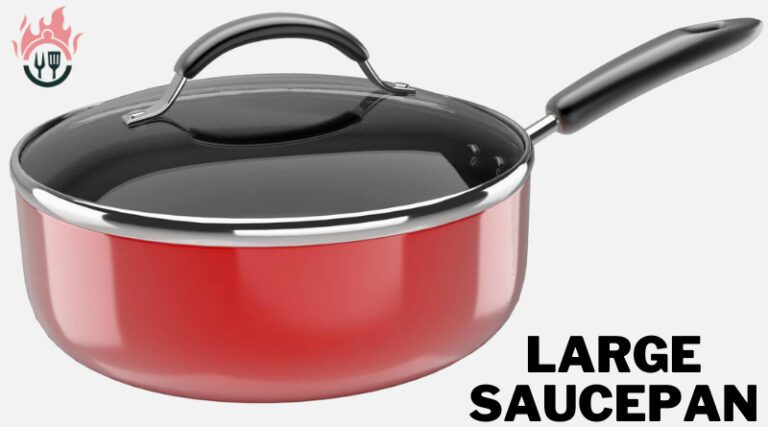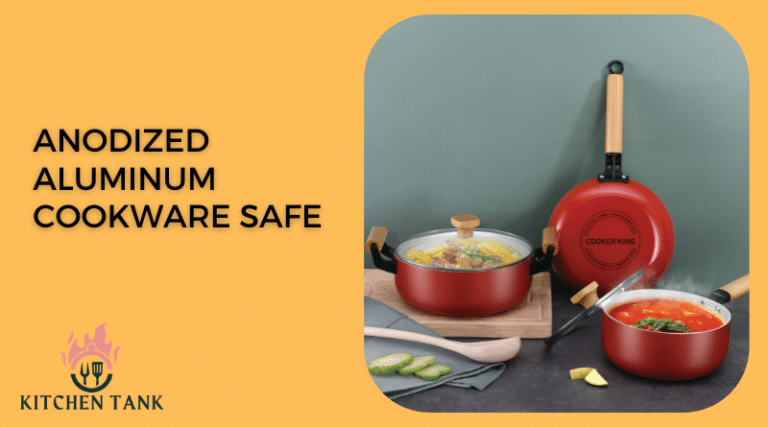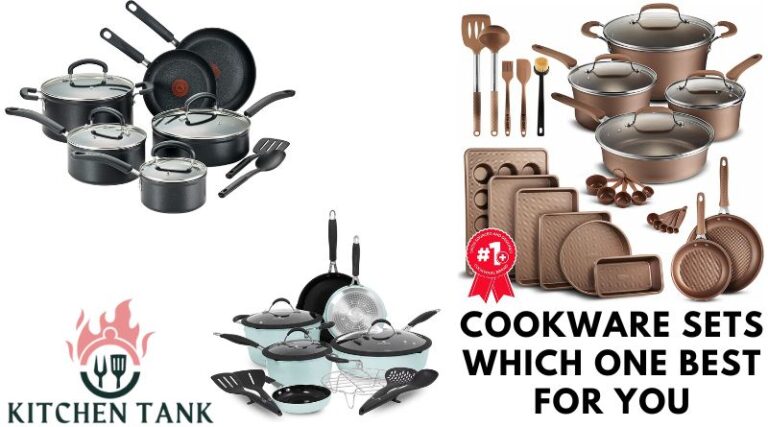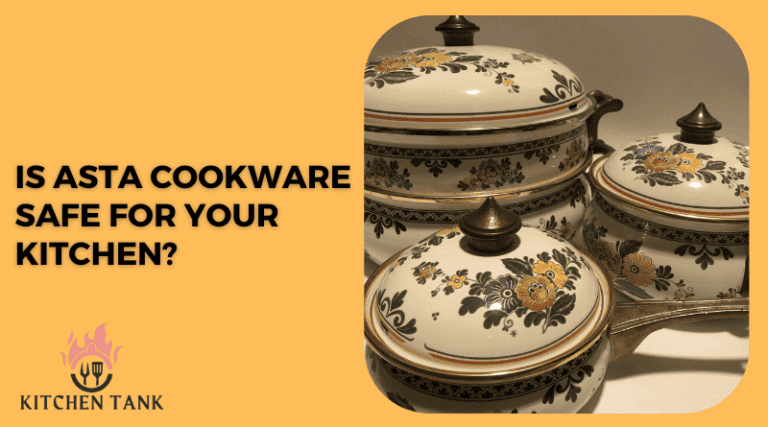Aluminum cookware has been popular with many home cooks and professional chefs for decades. Its excellent heat conductivity, lightweight construction, and affordability make it an attractive option for those looking to upgrade their kitchen cookware.
However, despite its many advantages, there are several aluminum cookware disadvantages that may make it less appealing to some consumers.
One major concern with aluminum cookware is its reactivity with certain types of foods. When in contact with acidic or alkaline ingredients, such as tomatoes, citrus fruits, or vinegar, aluminum can react and leach into the food.
This can not only affect the taste and color of the food but can also potentially pose health risks related to long-term aluminum exposure.
Additionally, aluminum cookware is not compatible with induction cooktops, which are becoming increasingly popular in modern kitchens. Induction cooktops use magnetic fields to heat up cookware directly, but since aluminum is not a magnetic material, it cannot be used on induction cooktops. This limits the versatility of aluminum cookware and may make it less appealing to those who are looking to upgrade to an induction cooktop.
Health Risks Associated with Aluminum Cookware
Although aluminum cookware is generally safe to use, there are some health risks with it. One of the most significant risks is that aluminum can leach into food, especially when cooking acidic or salty foods. This can lead to higher levels of aluminum in the body, which is linking to several health problems.
Studies have shown that excessive aluminum intake can cause damage to the nervous system, brain function, and bone health. It has also been linked to Alzheimer’s disease, kidney disease, and certain types of cancer.
Additionally, prolonged exposure to aluminum can lead to aluminum toxicity, which can cause symptoms such as fatigue, bone pain, and muscle weakness.
Aluminum cookware disadvantages
Aluminum cookware has several potential disadvantages that may make it less appealing to some consumers. These disadvantages include:
Reactivity
Reactivity is one of the major concerns with aluminum cookware. When aluminum cookware comes into contact with acidic or alkaline ingredients, such as tomatoes, citrus fruits, or vinegar, it can react and leach into the food.
This can affect the taste and color of the food, and may also pose health risks related to long-term aluminum exposure
Some studies suggest that high levels of aluminum in the body may be linked to health issues such as Alzheimer’s disease and osteoporosis.
While the evidence is not conclusive, it’s still important to be aware of the potential risks and to take steps to minimize exposure to aluminum, especially if you cook with acidic or alkaline ingredients frequently.
To minimize the risk of aluminum leaching into your food, avoid cooking acidic foods with aluminum cookware. Instead, use non-reactive cookware made from materials such as stainless steel, cast iron, or ceramic.
If you choose to use aluminum cookware, make sure about its coating or anodization, as this can help prevent aluminum from leaching into your food.
Not Induction-Compatible
Induction cooking is a popular cooking method that uses magnetic fields to heat up the cookware directly, rather than heating up the stovetop first.
This method of cooking is highly efficient and can save time and energy. However, because aluminum is not a magnetic material, it cannot be used for induction cooking.
This means that if you have an induction cooktop, you must choose cookware made of magnetic materials, such as cast iron or stainless steel, instead of aluminum. While this may not be a concern for those who do not use induction cooktops, it is an important consideration for those who do.
Aluminum, on the other hand, is not a magnetic material and cannot be used for induction cooking. This means that if you have an induction cooktop, you must choose cookware made of magnetic materials, rather than aluminum.
This can be a disadvantage for those who prefer the lightness and convenience of aluminum cookware but still want to use an induction cooktop. However, it is important to note aluminum cookware can still place on other types of stovetops, such as gas or electric.
Lack of Durability
One of the aluminum cookware disadvantages is its lack of durability. Aluminum is a relatively soft metal and can be prone to scratches, dents, and warping, especially if exposed to high heat or sudden temperature changes.
This can lead to the degradation of the cookware over time, making it less durable and more prone to damage. Additionally, aluminum cookware may react with certain acidic or alkaline foods, causing discoloration and pitting.
This can be especially problematic for those who regularly cook with ingredients like tomato sauce or citrus juice. However, there are some ways to mitigate these issues, such as choosing thicker-gauge aluminum cookware, avoiding sudden temperature changes, and using non-metal utensils to prevent scratching. Nonetheless, aluminum cookware may not be the best choice for those who prioritize durability and longevity in their cookware.
Prone to Warping
One of aluminum cookware disadvantages is that it can be prone to warping. Aluminum is a relatively soft metal and easily bent or warped under high heat or sudden temperature changes.
This can be especially problematic for larger pots or pans, which may be more susceptible to warping due to their size and weight. Once aluminum cookware becomes warped, it may no longer sit flat on a stovetop or other surface, making it less effective for cooking.
Additionally, warped cookware can cause hot spots, where heat is distributed unevenly across the surface of the pan, leading to uneven cooking. However, there are some ways to mitigate the risk of warping. Such as choosing thicker-gauge aluminum cookware and avoiding sudden temperature changes.
It is important to avoid using metal utensils, which can scratch the surface and increase the risk of warping. Despite these precautions, aluminum cookware may not be the best choice for those who prioritize durability and resistance to warping.
Not Dishwasher Safe
Aluminum is a lightweight, affordable, and popular material for making cookware. However, one of the drawbacks of it is that dishwasher detergents and high temperatures in the dishwasher can damage them.
The harsh chemicals in dishwasher detergents can cause aluminum cookware to discolor or pit. And the high heat in the dishwasher can cause warping, bending, or even cracking. This cannot only affect the appearance of the cookware but also its functionality, such as the ability to distribute heat.
To avoid damaging aluminum cookware, hand wash it using mild dish soap, warm water, and a non-abrasive sponge or cloth. This will help to prolong the life of the cookware and maintain its quality.
Stains and Discoloration
Another aluminum cookware disadvantages are that it can easily stain and become discolored over time. Especially when it comes into contact with acidic or alkaline foods.
Acidic foods, such as tomatoes or vinegar, can cause aluminum cookware to darken or discolor. While alkaline foods, such as some types of seafood, can cause it to turn a grayish hue.
In addition, if aluminum cookware is not properly cleaned and maintained. It can develop stains and discoloration that are difficult to remove. This can not only affect the appearance of the cookware but also its overall hygiene and safety.
To prevent stains and discoloration on aluminum cookware, avoid cooking acidic or alkaline foods in it for a prolonged time. It is also important to clean aluminum cookware immediately after use using mild dish soap and warm water. And to avoid using abrasive sponges or scouring pads that can scratch the surface of the cookware.
Not Non-Stick
Aluminum cookware is a popular choice for many home cooks because it is lightweight, affordable, and conducts heat well. However, one of the downsides of using aluminum cookware is that it is not naturally non-stick.
This means that food may stick to the surface of the cookware when cooking. It can make cleaning more difficult and may also result in unevenly cooked or burnt food.
To address this issue, some manufacturers may apply a non-stick coating to the surface of the aluminum cookware. However, these coatings may not be as durable as other types of non-stick coatings. It may wear off over time with regular use.
Additionally, some people may be concerned about the potential health risks with certain types of non-stick coatings. Such as those containing perfluorooctanoic acid (PFOA) or per fluorinated compounds (PFCs).
Conclusion
Aluminum cookware has many advantages, it’s important to consider these potential drawbacks before making a purchasing decision. Aluminum can leach into food, especially when cooking acidic or salty foods.
This can lead to higher levels of aluminum in the body, which can cause several health problems. By understanding these disadvantages, you can make an informed decision. Whether or not aluminum cookware is the right choice for your cooking needs.
FAQs
Q: Is it safe to cook in aluminium cookware?
A: While aluminum is a popular material for making cookware due to its affordability and excellent heat conductivity, it is not entirely safe to cook in aluminum cookware. When exposed to acidic foods, aluminum can leach into the food and may cause health problems in the long run. Also, if the cookware is scratched or damaged, the aluminum may seep into the food and cause health risks.
A: Yes, aluminum cookware can react with certain types of food, especially acidic foods like tomatoes, vinegar, and citrus. The acidic nature of these foods causes a reaction with the aluminum, which results in the leaching of the metal into the food. This can alter the taste of the food and cause health risks in the long run.
A: There has been a long-standing concern that cooking in aluminum cookware could cause Alzheimer’s disease, but there is no scientific evidence to support this claim. However, high levels of aluminum exposure have been linked to several health problems, including kidney damage, bone disorders, and anemia.
A: Aluminum cookware requires special care as it can easily scratch and dent. It is recommended to avoid using abrasive cleaning tools such as steel wool or harsh detergents, as they can damage the cookware. Also, it is best to avoid storing acidic foods in aluminum cookware for an extended period as the acidity can cause pitting and damage to the cookware.
A: Aluminum cookware is generally not as durable as other materials like stainless steel or cast iron. Over time, aluminum cookware can warp, scratch, and lose its non-stick properties. However, aluminum cookware can last several years with proper care and maintenance. It is essential to follow the manufacturer’s instructions for use and care to ensure that the cookware lasts a long time.







